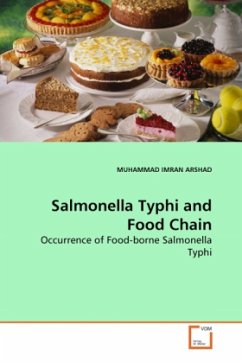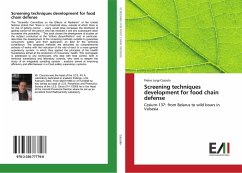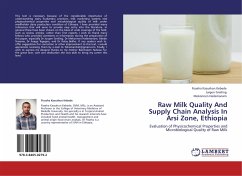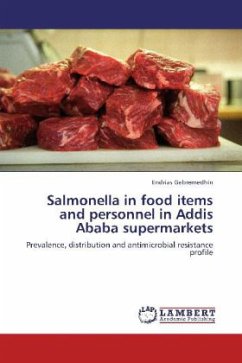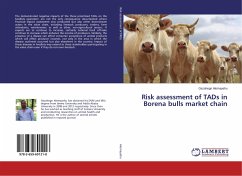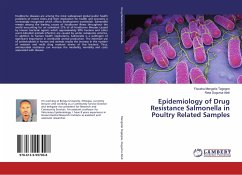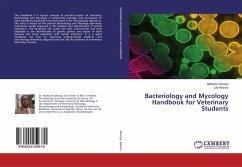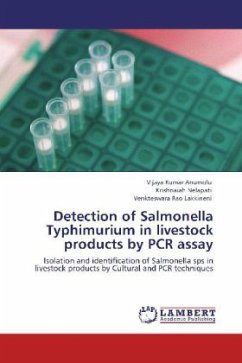Typhoid fever is a systemic disease contracted by ingestion of contaminated food or water. It is caused by the bacterium Salmonella typhi. Occurrence of S. typhi in poultry eggs, meat, drinking water, bakery products, and salad was studied. The isolates of S. typhi were confirmed by cultural characteristics, Gram's staining, biochemical and sugar fermentation reactions. These isolates were used as positive control in PCR and food samples directly collected in broth were checked for rapid detection of S. typhi in food chain instead of routinely used isolation and identification protocols. Anti-biogram profile of S. typhi isolates revealed that the isolates were highly susceptible to ciprofloxacin and to cefotaxime. The isolates were found resistant to amoxicillin and streptomycin. Application of PCR technique for the detection of S. typhi in food chain suggests a rapid detection method. This research work will be useful to know the occurrence of other food-borne human or animal pathogens in food commodities. Moreover, these findings may be helpful for food security and safety professionals as well as food microbiologists.
Bitte wählen Sie Ihr Anliegen aus.
Rechnungen
Retourenschein anfordern
Bestellstatus
Storno

